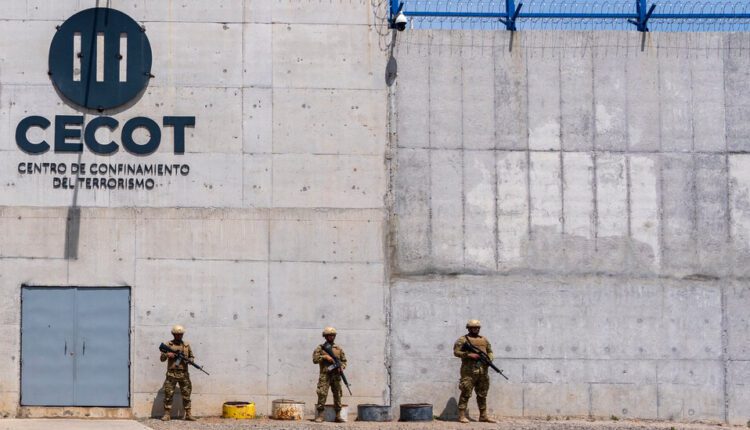
Supreme Court Allows Trump Admin to Continue Deportation of Venezuelan Migrants
TL/DR –
The US Supreme Court has ruled that the Trump administration can continue deporting Venezuelan migrants using the Alien Enemies Act, overturning a lower court’s stop order. The court did not rule on constitutionality but rather said the migrants’ lawsuit was filed in the wrong court. In addition, the court stated that the detained migrants must receive advance notice and have the opportunity to challenge their deportation before removal.
Supreme Court Rules in Favor of Trump Administration on Deportation of Venezuelan Migrants
The Supreme Court ruled on Monday that the Trump administration can proceed with deportation of Venezuelan migrants under a wartime powers act. This move overturns a lower court’s halt to the deportations in a narrow procedural ruling, declaring that the lawsuit was filed in the wrong court.
All Supreme Court justices agreed that detained Venezuelan migrants must receive advance notice and a chance to challenge their deportation. Yet, the court was divided over where and how this process should occur.
The justices concurred that the migrants must be informed of their pending removal under the Alien Enemies Act within a reasonable timeframe, imposing potential new restrictions on future usage of the act by the Trump administration.
President Trump regarded the decision as a victory via a social media post on Truth Social. Meanwhile, Justice Sonia Sotomayor expressed dissent, voicing concern over the potential harm migrants could face upon deportation to El Salvador.
Legal Disagreements and Dissent
A separate dissent by Justice Jackson criticized the court’s decision to use the emergency docket, noting the lack of detailed record for public review. She referenced the Korematsu v. United States decision in 1944 as a historical misstep.
Despite needing to start over in a different court, lawyers for the migrants, including Lee Gelernt of the American Civil Liberties Union, considered the ruling a win. They emphasized the court’s rejection of the government’s assertion that they do not need to provide advance notice of removal under the Alien Enemies Act.
Conflict Between Judicial and Executive Branches
The case involves the Trump administration’s application of the Alien Enemies Act, a 1798 law, to deport over 100 Venezuelans alleged to be part of violent street gang Tren de Aragua. The administration contends that the president has the power to deport or detain citizens of enemy nations at times of declared war or foreign invasion.
On March 14, plane loads of deportees were sent to El Salvador following an agreement with the Trump administration. However, Judge James E. Boasberg ordered a halt to the flights, issuing a written order to pause the administration’s plan pending court proceedings.
Future Court Battle
The Trump administration called upon the Supreme Court, advocating that the case raised crucial questions about the conduct of sensitive national-security-related operations. Lawyers for the migrants responded vigorously, arguing Judge Boasberg’s pause was the only barrier preventing the migrants from potential indefinite detention in El Salvador.
The American Civil Liberties Union and Democracy Forward advocate for the Venezuelan migrants, arguing that the detainees have been mistreated in El Salvador’s prisons. Following the court’s ruling, the Trump administration contended they were not denying judicial review for the deportees, but rather arguing the case should have been filed in Texas.
—
Read More US Political News
